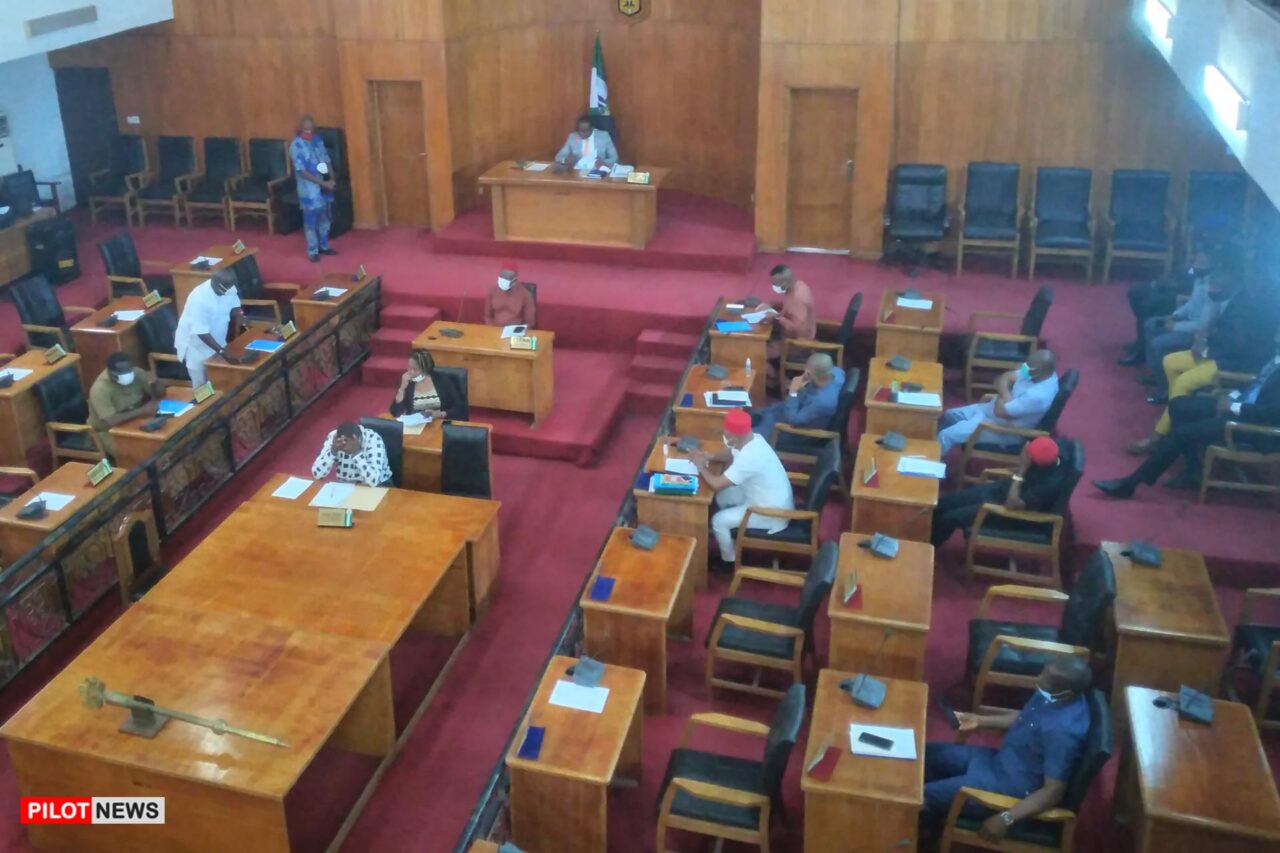AWKA — Anambra State House of Assembly during its plenary session today passed the “Anambra State Judiciary Funds Management” which is otherwise known as “Financial Autonomy Law 2021”.
The Bill which was brought to the House by the judiciary arm of Anambra state government for consideration was duly referred to the House Committee on Judiciary chaired by Hon. Barr. Douglas Egbuna, the member representing Onitsha North 1 constituency. In line with lawmaking procedure, the committee’s report was submitted for deliberation by the whole House and was subsequently painstakingly reviewed by the members, after which the Bill was read for the third and final time by the clerk of the House, Pius Udoh.
Among many other things, the law provided for the establishment of Anambra State Judiciary Funds Management Board to be chaired by the Chief Judge of the state. Members of this Board include; Chief Registrar of the High Court who shall be the secretary of the Board, Secretary of the Judicial Service Commission, among others. The Board accordingly is charged with some of the following responsibilities; award and approval of contracts, procurement, and services above twenty million Naira.
They are equally charged with monitoring and directing the manner funds in the judiciary accounts are applied for the services and administration of the Anambra judiciary. Then also it is their responsibility to prepare and submit quarterly reports of judiciary funds management to the Chief Judge and the State Accounts Allocation Committee, among other functions.
A few months ago, the state judiciary went on strike nationwide to protest their lack of autonomy which is largely a consequence of the financial control the executive arm exerts on the state judiciary which in most part, has hindered the independence of the judiciary in the state. Similarly, state parliamentary members of staff were equally on strike nationwide to protest the same fate which has limited, possibly obstructed, their independence as a distinct arm of the state government.
Generally, financial autonomy of the state legislature and judiciary, it is expected, will go a long way to detach personalities from state institutions and help the other two arms of the government be more independent as well as function much better than they are currently doing.
However, it is not clear how the Anambra state government will react to the development. For instance, the Anambra State House of Assembly Service Commission Bill has been passed into law at least twice, but still not assented to, by the governor. It was first considered and passed into law by the 5th Assembly but was not assented to by the governor till the lifespan of the Assembly elapsed. The current Assembly has equally passed it into law again in its early days, over a year later, it is yet to be signed into law.
Nigerian governors are mostly apprehensive of these laws granting autonomy to either arm of the government or levels and in this instance, the local government. The governors simply prefer to be in charge of absolutely everything which bestows on them the privilege to arrogate powers they do not constitutionally have, to themselves.
It is therefore not exactly certain how Governor Obiano may look at or receive the passage of the bill. However, it is a good place to be optimistic because the governor may equally wish to have it signed into law so that the bill and others like it which aims at granting the legislature and the judiciary autonomy, may be among his parting legacies in strengthening government institutions.
- World Immunization Week: Medical Practitioners, Others, Speak on the Benefits of Immunization - April 25, 2024
- Insecurity in Anambra: “We must focus our gaze within” – Uzu Okagbue - April 25, 2024
- Anambra Schoolgirls Win National ICT Competition - April 25, 2024


